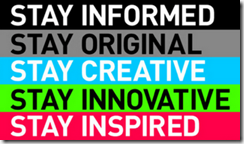 Lately I’ve been seeing the phrases “kind of” and “sort of” in print, and hearing them far too often on podcasts and radio. When is it appropriate to use these terms and when should we leave them at home?
Lately I’ve been seeing the phrases “kind of” and “sort of” in print, and hearing them far too often on podcasts and radio. When is it appropriate to use these terms and when should we leave them at home?
If you have a task at work that is slightly difficult, you can say that it is kind of a pain. What you don’t want to say is this: “I have a sort of project that needs to be finished by Friday.”
The first sentence has “kind of” modifying the word pain, which makes sense. The second sentence has the adjective modifying the word project, which doesn’t make any sense, because we’re not going to have a “sort of” project. We either have a project or we don’t!
Here’s another one. “It’s kind of important for me to show up at the party.” That sentence is fine. If I change it to this, it’s grammatically incorrect: “It’s important for me to kind of be at the party.”
You either show up or you don’t. Kind of and sort of are filler words akin to “like…” (I was, like, so busy.) They seem to be the modern equivalent of saying “um” or “ah,” but you don’t want to discard them altogether, because there are a number of instances where they are the best words of choice.
Sigrid Macdonald is a book coach, a manuscript editor, and the author of three books including Be Your Own Editor. BYOE is available on Amazon in soft cover (http://tinyurl.com/3xkoths) and on Kindle (http://tinyurl.com/3y3nuzb). Or get 20% off the regular price by writing directly to the author.




